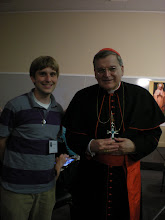The final cycle can be grouped into two sections. Starting with Humanae Vitae, John Paul II asserts the inseparability of procreative and unitive aspects of the conjugal act as the moral norm. He indicates that all previous analyses in this catechesis, which establish the anthropology and ethos of the redemption of the body, allow for the right understanding of Humanae Vitae. The teachings in the encyclical are pastoral and practically applicable, but are only possible to carry out by grace. John Paul II cites Humanae Vitae’s definition of responsible parenthood: knowledge and reverence for biology, dominion of passions, and prudence according to economic and social factors. By this definition, one can conclude that natural methods of regulating birth are morally licit, whereas artificial means of contraception are not. John Paul II then explains the essential evil of contraception, in that it objectivizes the persons, no longer master of themselves, preventing total and mutual self-gift, and despite a bodily union that still takes place. The natural methods promote right behavior and an ethical character. These natural methods, also referred to as periodic continence, foster the virtue of chastity (self-mastery). John Paul II states, “it is above all important to have a deep grasp of the ethical dimension, in whose area the method, as a ‘natural’ method, acquires its meaning as an honorable or ‘morally right’ method.” (TOB 125:5) Also, by citing Humanae Vitae 21, John Paul II stresses that responsible parenthood is not only about conception, but also the raising of children.
The second section outlines conjugal spirituality. He begins with a reflection on the spirituality of the married couple, as the teaching of Humanae Vitae is not limited to the biology of the conjugal act. That spirituality is to be authentically Christian, as it ought include prayer and the sacraments, especially those of Eucharist and Penance (cf TOB 126:5) in order to foster authentic love. The power of this love, whose difficult task is overcoming concupiscence, when united with chastity (continence), protects the two meanings of the conjugal act: unity and procreation. This difficulty, which remains a difficulty and not a contradiction in Church teaching, can be treated by engaging in other manifestations of affection that express personal communion, if the couple has right reason to avoid children. In order to speak to the possibility of continence in marriage, John Paul II positively defines continence as the ability to orient both arousal and emotion, though distinct, as to their content and as to their character (cf .TOB 129:5), which are unity and procreation. Continence, with regard to mutual self-gift, maintains equilibrium between arousal and emotion, never separating them. The gifts of the Holy Spirit, specifically reverence for God’s creation, i.e. the human person, are absolutely essential to live conjugal chastity as reverence promotes profound respect for the human body.
In John Paul II’s conclusion, he summarizes the entire catechesis and exhorts that a deeper theological and ethical anthropology guide us all in confronting issue of marriage in procreation.



